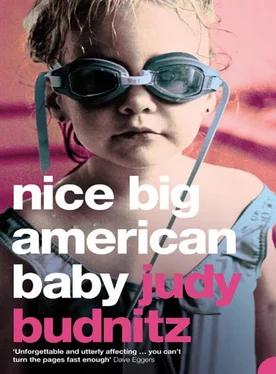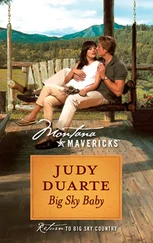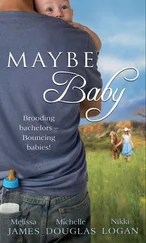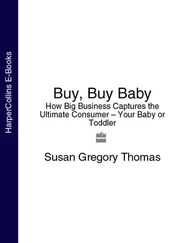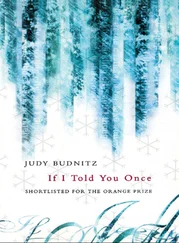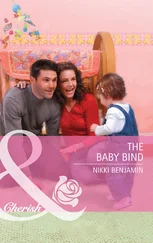nice big american baby
judy budnitz
dedication dedication where we come from flush nadia visitors saving face miracle sales elephant and boy immersion the kindest cut preparedness motherland acknowledgments about the author praise by the same author copyright about the publisher
for amanda davis
cover
title page nice big american baby judy budnitz
dedication
where we come from
flush
nadia
visitors
saving face
miracle
sales
elephant and boy
immersion
the kindest cut
preparedness
motherland
acknowledgments
about the author
praise
by the same author
copyright
about the publisher
where we come from
1. before
There was a woman who had seven sons and was happy. Then she had a daughter.
She loved her sons with a furious devotion. But she did not want the daughter, even before she knew it was a daughter. She could feel the baby sitting low in her belly and did not want it.
Another burden on my back, the woman thought, another mouth to feed.
From the moment the girl was born she was frail and sickly; she greeted the world with a sneeze. The mother heard the sneeze and felt a heaviness descend upon her heart. Even with the best coddling and foreign medicine, the girl would probably die within the month. Three years at the most. A waste. It would be better, she thought, if the girl died now and got it over with. There were many ways a baby could die. Infant death was common in that part of the world; no one would notice one baby more or less.
Then she looked at the tiny wrinkled face and felt ashamed. She resolved to love her daughter as she did her sons.
She named the girl Precious, to remind herself.
She made a promise to her daughter, but her seven sons were a delight and a distraction and if she did not break that promise she did bend it to its limits, like a young tree in a windstorm. Precious learned to make no demands on her mother. She took the food from the bottom of the bowl at meals and kept her feet clean so she would not leave footprints behind her.
The woman was happy. Her sons grew tall. People told her how lucky she was: eight children, all of them still living.
But I have seven children, she would say. And then: Oh. Yes.
One year the rains came doubly hard, the roads became rivers of mud, and the fruit rotted on the vine. The next year the rains did not come at all. Surely, people said, the third year will be a good year. But they were wrong.
It had never happened before—two years without rain. Even those people who considered themselves modern began to pray again and to hang charms at their doors.
The underground stream that fed the electric pump in the village dried up. The woman’s sons went searching for water. They were tall and thin and knew how to travel in the heat of day. They ran and rested, ran and rested. Each time they paused they arranged themselves in a descending line so that all but the oldest could rest in a brother’s shadow.
They had taken buckets and jars to carry water back to their mother. And to Precious. Precious: always remembered, but always as an afterthought.
They found a wire fence. The top of the fence was lined with prickly wire like a thornbush. They tore their hands on it, climbing over. Far in the distance they could see a dark smudge bleeding into the sky. They ran closer. It was the largest building they had ever seen, massive and gray and faceless, with three tall chimneys like fingers pointing to the sky. The black smoke that poured from them was like nothing they had ever seen before. It hung in the sky without dissipating, it was dense and heavy, like rain clouds about to burst.
The oldest said it was a rain factory. He said he remembered hearing people talk about it. He was sure.
Yes, said another, I heard that too. It’s true.
Beyond the building they saw a pool, almost a lake. It was perfectly shaped and perfectly still, and the water was the strangest color they had ever seen—bright, bright blue and iridescent, with pearly rainbows on its surface. They agreed that the color must mean it was very pure.
The first one to taste the water became very sick. His brothers watched him twisting and retching, his arms folded in on themselves like wings. A thick white gravy came out of his mouth and nose. They heard a roaring in the stillness and looked up to see two trucks speeding toward them trailing clouds of dust. They lifted their brother and ran.
They knew their brother could not climb the fence, so they hid among the rocks where they knew the trucks could not follow, and they waited for dark. They dug beneath the fence with their hands. It took them most of the night. They knotted their shirts into a sling and headed home, carrying their brother between them.
The woman was waiting on her doorstep for her sons to return. In the red light of dawn she saw their silhouettes approaching. She counted only six bobbing heads and began to keen in her throat.
Her son did not die. Eventually his hands uncoiled and he was able to walk again. But he was not the same as he was before. His face had hardened into a new expression that made him look like a suspicious stranger.
She knew that was not the end of it. The poisoned water was the beginning, a portent of what was to come. She was not surprised when, soon after, her sons began to disappear one by one.
The rains still did not fall. Everyone was hungry. The earth was cracked and barren. There was no work to be done, and anger and discontent began to ferment in the hearts of the people. Some complained against the government, though many had never seen the slightest evidence of any government and did not believe it existed. There was talk of electing leaders, building an army, an army for the people. The woman listened but did not understand how an army could bring the rains.
The woman’s eldest son came to her and said he was going to become a soldier.
But you’re just a child, she said.
The army has a whole division just for children, he said. I’m already too old for it. I will have to join the men.
She saw his thin chest surge with pride as he said this, and her heart ached.
So he left and she knew she would not see him again. Soon another son left to join his brother. It was the one who had drunk the tainted water; he waved as he walked up the dusty road and she could see he was trying to smile for her, but his facial muscles were frozen in a sneer.
One of the younger boys announced that he was going to join the children’s army. She forbade it. He ran away in the night.
She heard rumors of fighting, the people’s army fighting the government’s, factions of the people’s army fighting each other. There was an outbreak of fever in the village and many people died, including her youngest son.
So she had three sons left. Then two more went off to fight. They went together; that, at least, was a comfort.
Don’t become a soldier, she told her last remaining son.
I don’t want to, he said, but they will force me to if I stay.
She knew. She had seen boys being dragged down the street, people averting their eyes. But she did not want him to leave.
He told her he wanted to go to the capital. He asked for money to get there. She would not give it to him, but he stole it and left while she slept. He was a hundred miles from home when the bus skidded off the road and rolled over.
Now the daughter she didn’t want was all she had. The woman was not so much bitter as resigned to her fate; she suspected she was being punished for her thoughts at the girl’s birth. All the furious love the woman had lavished on her sons she now poured on her daughter, and for the first time Precious’s name seemed justified.
Читать дальше
